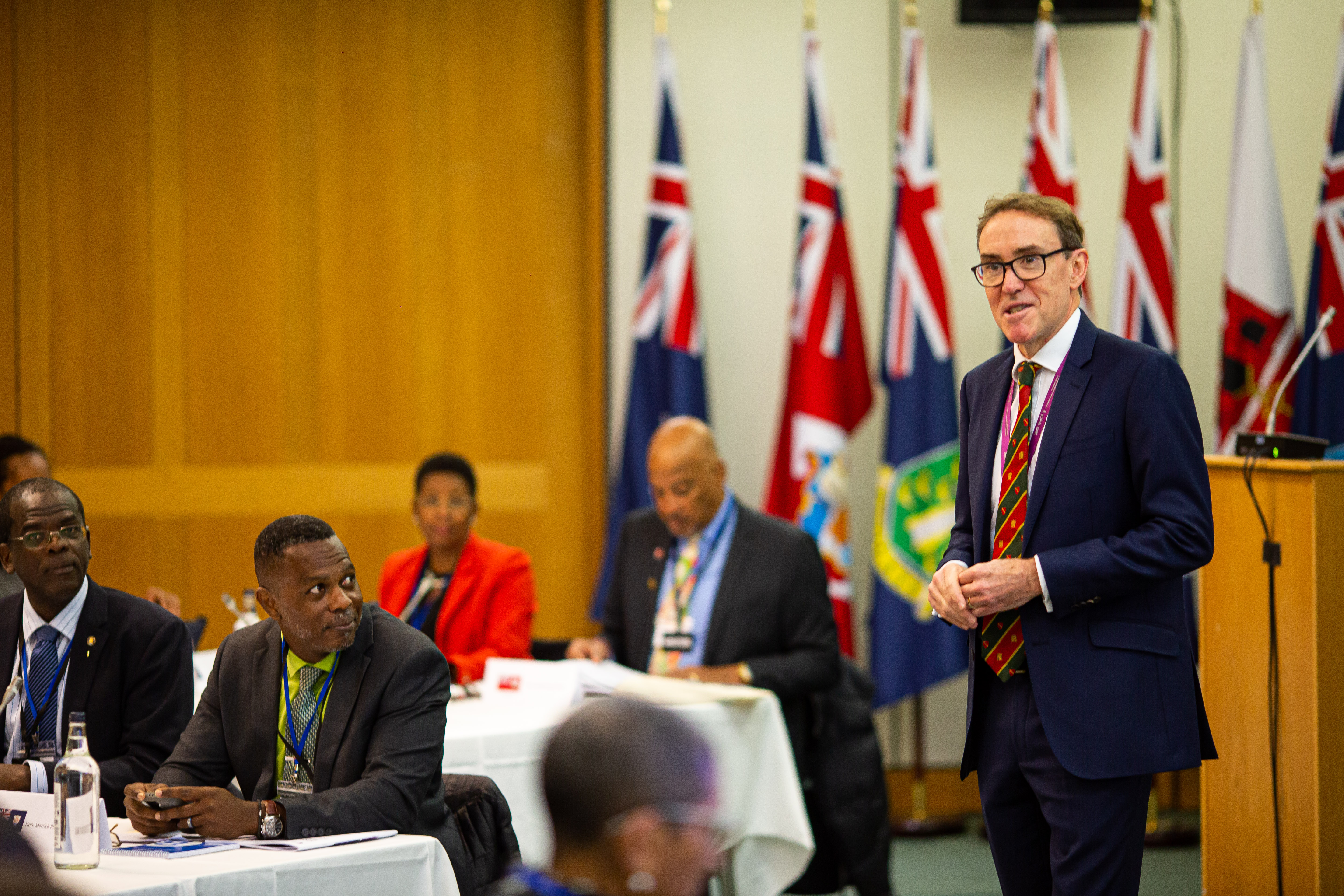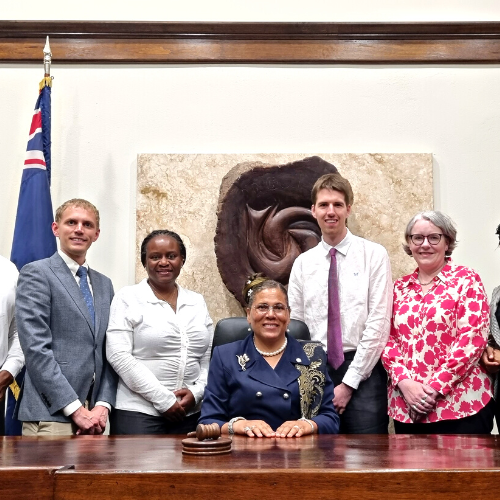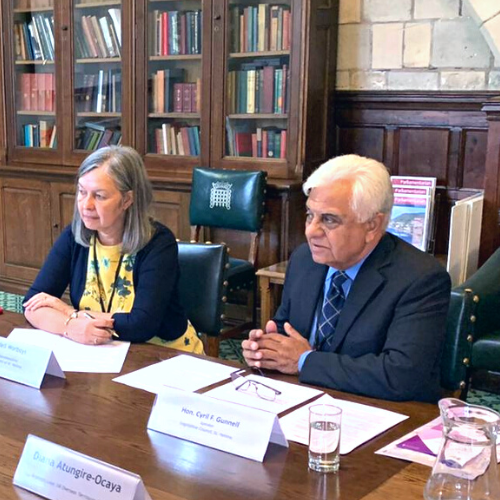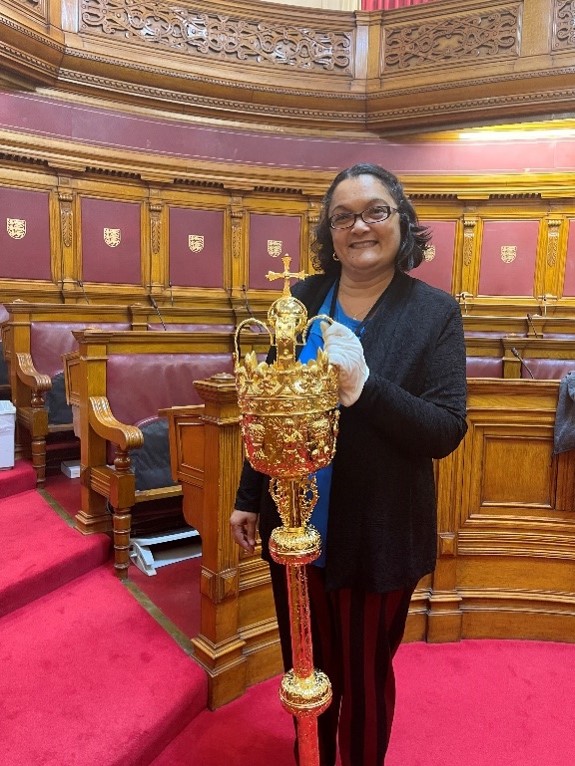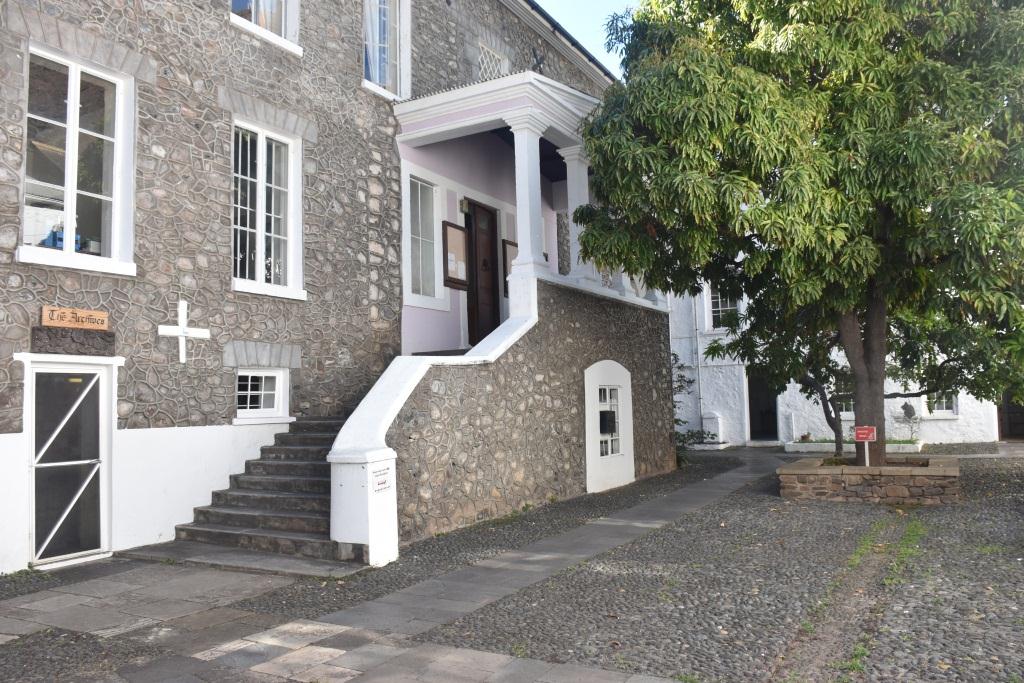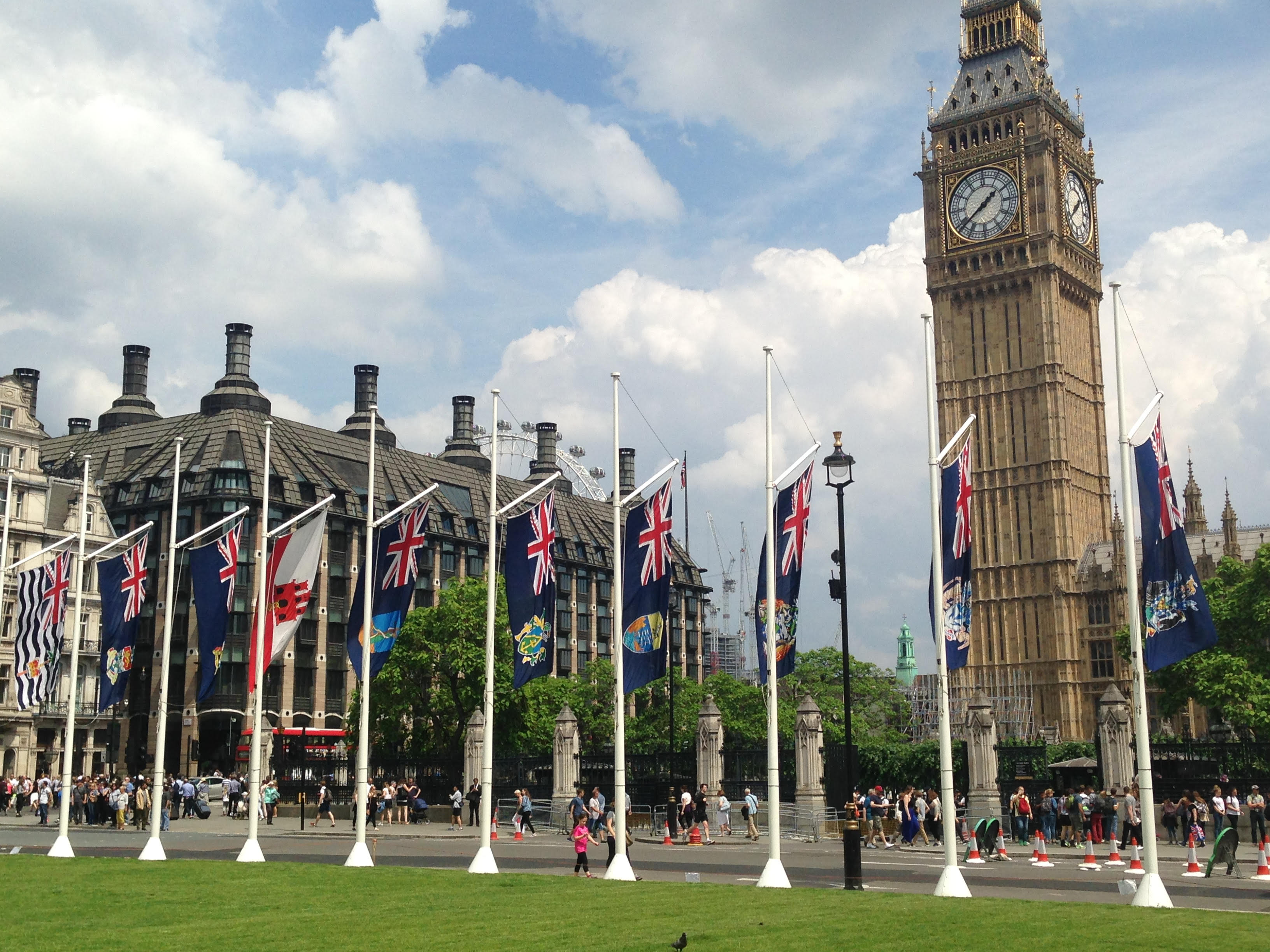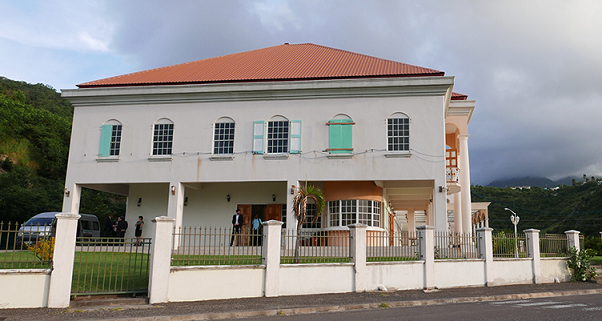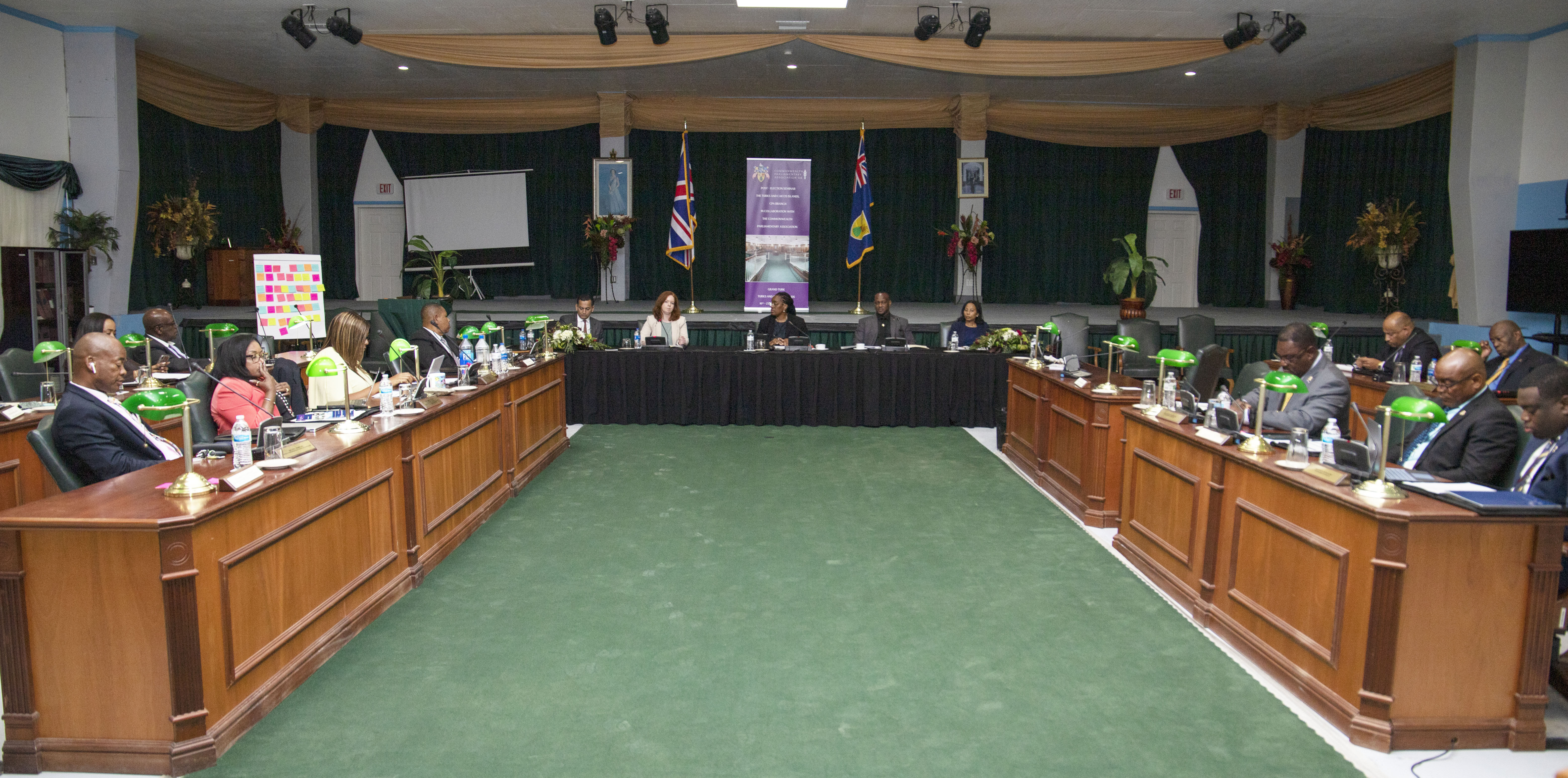Virtual Communications Training for Montserrat’s Elected Representatives
Published 15 November 2021
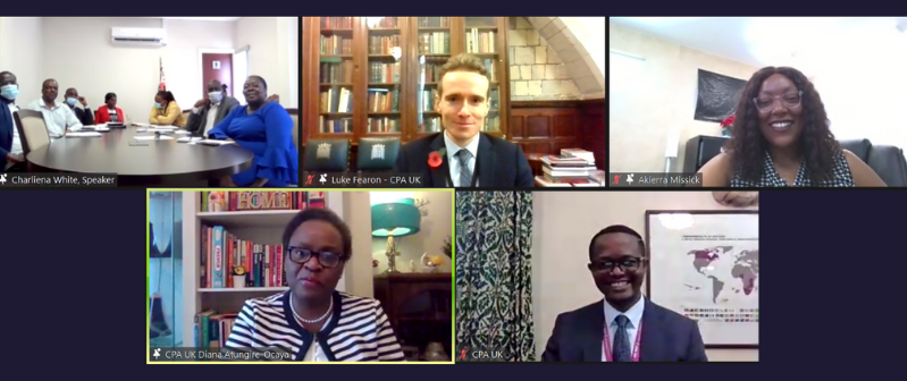
The training, which took place virtually on 8 November, aimed to support elected representatives in Montserrat in communication skills for parliamentary purposes.
The parliamentarians exchanged with two speakers, Baroness D’Souza from the UK Parliament, and Hon. Minister Akierra Missick from the House of Assembly of the Turks and Caicos Islands. The session focused on sharing good practice in parliamentary etiquette and conduct, effective debating and questioning, and good practice in the committee context.
Etiquette and Conduct in the Parliamentary Chamber
Baroness D’Souza highlighted that appropriate etiquette and conduct are the foundation of clear communication in the chamber.
Citing the UK House of Lords as an example, she observed that when the Speaker is standing members will sit down as a sign of respect. This also ensures that the Speaker can be heard. There are additional conventions for speaking in the chamber, including advisory time limits for speaking in a debate, and mandatory time limits for contributions during shorter debates.
Regarding conduct, members are expected to demonstrate “decent behaviour”, in line with the Nolan Principles, which apply to all public office holders in the UK. Baroness D’Souza listed these seven principles of public life as: selflessness, integrity, objectivity, accountability, openness, honesty, and leadership.
Debating and Questioning in the Parliamentary Chamber
Baroness D’Souza and Hon. Missick underlined the responsibility of parliamentarians to use their powers to question ministers on policy decisions and matters that affect their constituents. Participants also noted that the fundamental purpose of questioning is to get concise answers and elicit information from the government.
Practical Advice for Parliamentary Questioning
- Questions to ministers should be directed through the Speaker with a level of respect. This respect elevates the level of conversation in the chamber and sustains the “sanctity of parliament”, leaving a positive impression on observers of parliamentary debate.
- Questions should be kept short, sharp, and to the point. The ability to follow up on the response of the minister is also important. Members can also consider using closed questions designed to achieve a “yes or no” answer from a minister.
- Members who pose long-winded questions can often contradict themselves and overwhelm a minister, who may forget what the original purpose of the question was.
Effective Communication in a Committee Context
Focusing on the work of parliamentary committees, Hon. Missick stated that as scrutiny is one of the most powerful tools legislators have, it is critical that committee members “leave party politics at the door” and put the country first.
Practical Advice for Committee Questioning
- Ensuring that committee members are prepared for a hearing will enable them to confront a witness if they present contradictory information or provide elusive answers.
- Scheduling pre-committee hearings and involving every committee member in a hearing helps ensure the focus remains on the interest of the country as a whole.
- Personal animosity between members and a lack of cooperation on the committee will disadvantage the country and its citizens.
The training builds on previous CPA UK work with Montserrat, including a Post-Election Seminar for new and returning members delivered by the UK Overseas Territories Project in 2020, along with ongoing support for a review of Standing Orders of the Legislative Assembly. For more information on past CPA UK work with the Legislative Assembly of Montserrat, please visit our website.
